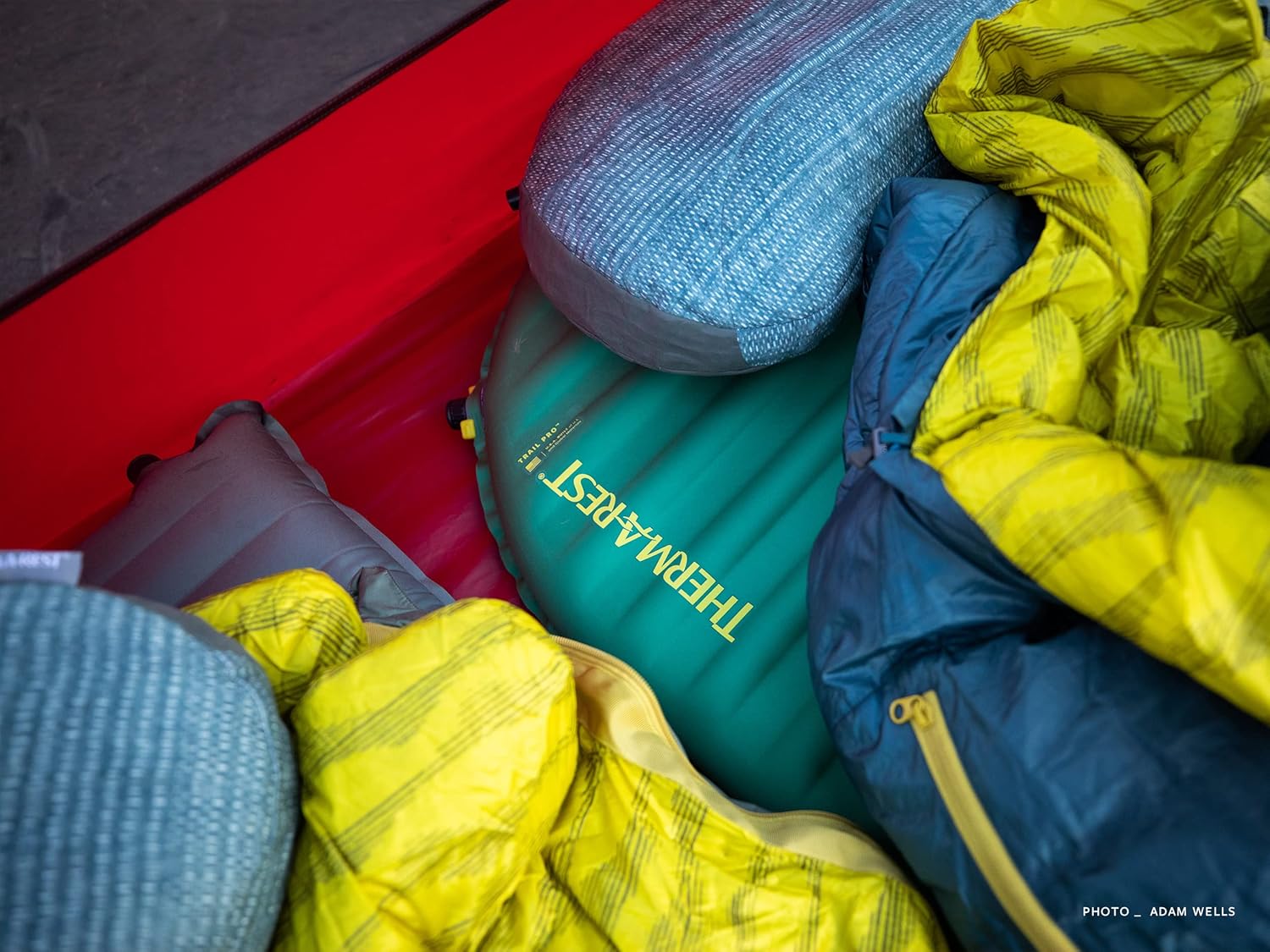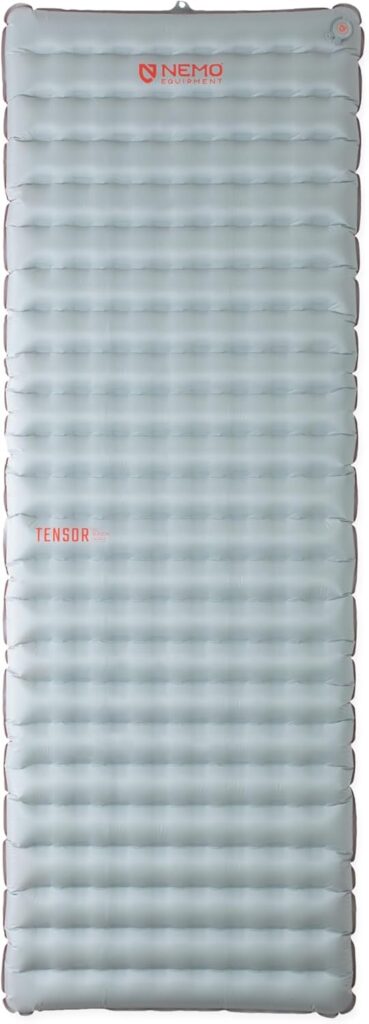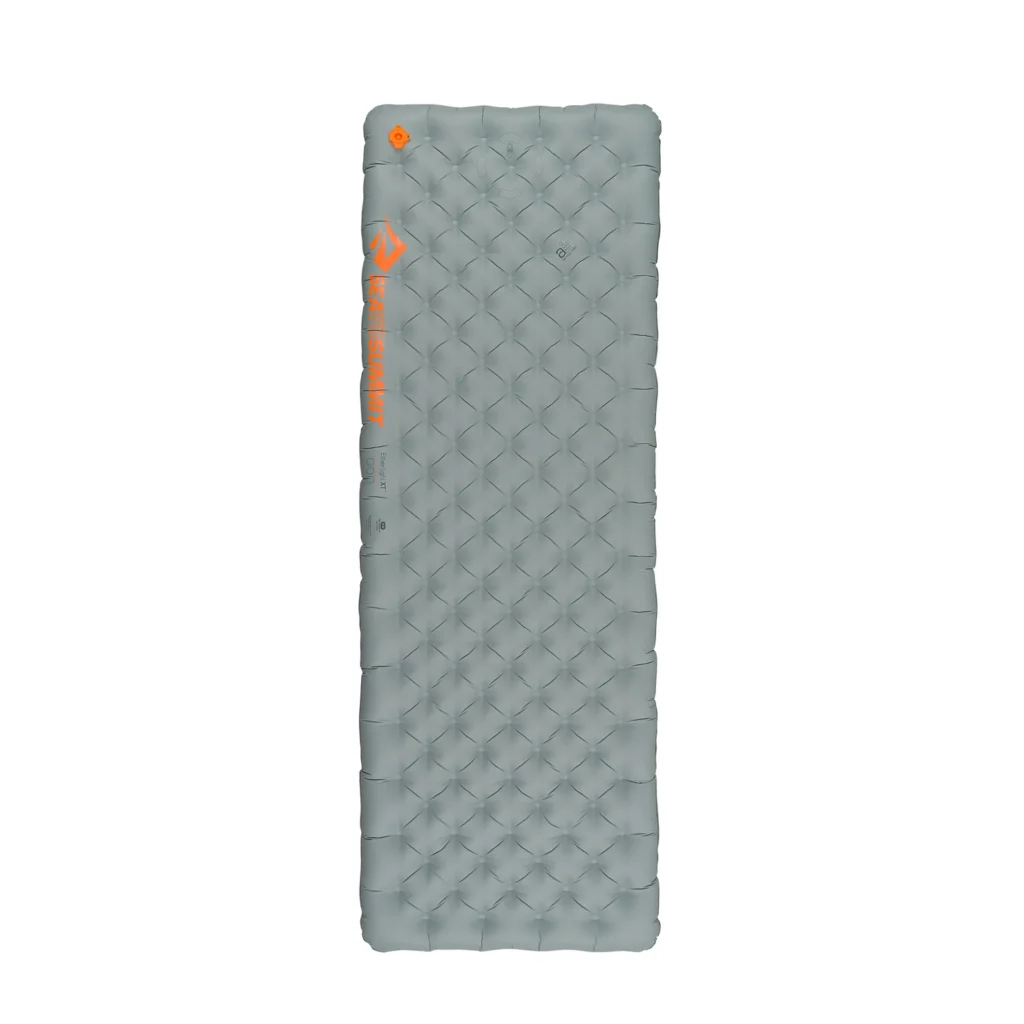<script type="text/javascript" src="http://classic.avantlink.com/affiliate_app_confirm.php?mode=js&authResponse=c4e13e1b9b5acdedad16d533a16f7bf0c234d607"></script>
<script type="text/javascript" src="http://classic.avantlink.com/affiliate_app_confirm.php?mode=js&authResponse=c4e13e1b9b5acdedad16d533a16f7bf0c234d607"></script>

Looking for a warm, self-inflating sleeping pad with plush comfort and great all-season performance? In this Therm-a-Rest Trail Pro review, we dive into why this durable and supportive pad remains a favorite for backpackers, campers, and cold-weather adventurers.

The Therm-a-Rest Trail Pro Sleeping Pad is a self-inflating, foam-core pad designed for comfort and insulation. With an R-value of 4.4 and 3 inches of thickness, it’s suitable for 3-season use and even mild winter trips. The StrataCore construction uses a continuous layer of thermal foam sandwiched between air channels, maximizing warmth without adding too much weight. The pad weighs 27 oz (regular) and rolls up to a packed size of 11 x 8.8 inches.
The WingLock valve allows for rapid inflation and deflation, and the self-inflating design means less effort at camp. The stretch-knit top fabric adds a soft touch, making it ideal for campers who want added comfort without going full luxury.
| Weight | 27 oz (regular) |
| R-Value | 4.4 |
| Thickness | 3 inches |
| Packed Size | 11 x 8.8 inches |
| Material | 50D polyester, stretch-knit top |
| Sizes Available | Small, Regular, Regular Wide, Large |
Therm-a-Rest Trail Pro Sleeping Pad vs. Nemo Tensor All-Season Ultralight Insulated Sleeping Pad

The Nemo Tensor All-Season Ultralight Insulated Sleeping Pad is lighter and more compact, with a slightly higher R-value of 5.4. It offers a quieter, plush sleep surface ideal for ultralight trekkers. However, the Therm-a-Rest Trail Pro Sleeping Pad delivers greater comfort for those who prefer self-inflating pads and don’t mind a bit of extra weight. The Trail Pro is better for colder weather and car camping, while the Tensor is optimized for fast and light travel.
Therm-a-Rest Trail Pro Sleeping Pad vs. Sea to Summit Ether Light XT Insulated Sleeping Pad

The Sea to Summit Ether Light XT Insulated Sleeping Pad is thicker at 4 inches and caters especially to side sleepers with its Air Sprung Cell design. It weighs less and packs down smaller than the Therm-a-Rest Trail Pro Sleeping Pad but uses an air-only design. The Trail Pro’s foam core offers a more stable and supportive feel, especially on uneven ground. Choose the Ether Light XT for plush, lightweight comfort, and the Trail Pro for warmth and all-season reliability.
| Feature | Trail Pro | Tensor All-Season Ultralight | Ether Light XT Insulated |
|---|---|---|---|
| Weight | ❌ Heavier (27 oz) | ✅ Lightweight | ✅ Lightweight |
| R-Value | ✅ Good insulation (4.4) | ✅ Higher (5.4) | ✅ 3.5 (good 3-season use) |
| Thickness | ✅ 3″ foam support | ✅ 3.5″ inflatable | ✅ 4″ thick, plush |
| Comfort | ✅ Soft top, stable sleep | ✅ Quiet, comfortable | ✅ Cushioned, great for side sleepers |
| Packed Size | ❌ Larger (11 x 8.8″) | ✅ Smaller | ✅ More compact |
| Best For | All-season comfort | Ultralight 3-season treks | Plush, lightweight 3-season hiking |
Looking for a different sleeping pad for your trip? View our Best Sleeping Pads guide for more options.
Is the Therm-a-Rest Trail Pro suitable for winter?
Yes, with an R-value of 4.4, it works well for most cold-weather conditions short of deep winter expeditions.
How long does it take to self-inflate?
It begins inflating in a few minutes, but you may need to top it off manually for full firmness.
Is the pad noisy when moving?
No, the soft stretch-knit surface is quieter than traditional inflatables.
Can it be used for car camping?
Absolutely. It’s a great choice for basecamps or anyone who wants more comfort than ultralight pads typically offer.
Does it come with a stuff sack?
Yes, it includes a stuff sack for easier storage and transport.

The Therm-a-Rest Trail Pro Sleeping Pad strikes a solid balance between comfort, warmth, and ease of use. With reliable insulation, soft materials, and a self-inflating design, it’s a versatile option for both backpackers and campers who prioritize comfort in cooler conditions.